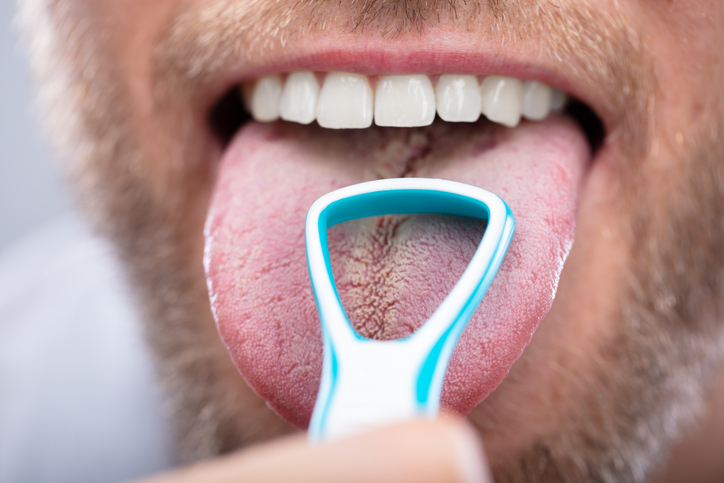Good Oral Hygiene May Be One of the Keys to Happy & Healthy Longevity

By Joy Stephenson-Laws, JD, Founder
One of the most shocking and disturbing predictions that I recently came across was that by 2025, 13 million Americans will have Alzheimer’s disease (currently there are about six million). I suppose you could look at this projected seven million increase as what happens when people live longer.
“The average lifespan in the United States has taken a hit in recent years in part due to the COVID-19 pandemic and the opioid crisis. But the nation’s population is growing older with more people living to 100 than in decades past,” according to a report from The Hill.
I, however, don’t think older age and dementia should go hand in hand. What’s the point of longevity if it’s not healthy and happy longevity? According to the CDC, Alzheimer’s is the sixth leading cause of death in the United States.
It’s never too late or too early to be proactive about preventing Alzheimer’s. What is also very important to note is that brain changes that occur from Alzheimer's start at least 10 years before symptoms appear (according to the National Institutes of Health (NIH)).

The mouth: gatekeeper to our overall health.
For some reason, so many of us tend to think that going to the dentist is not that critical. It’s as if the dentist is treated like a secondary doctor to our primary care doctor to whom we go for annual physicals. The reality is most of us should be going to the dentist twice or even three times a year (how often depends on your current oral health status). Think about it and be honest with yourself. Has it been over a year since your last visit?
Oral hygiene and health is extremely important. Advanced gum disease has been associated with other serious health issues such as cancer, diabetes, arthritis and heart disease. You can read in great detail about gum disease and its association with these other diseases in this older pH blog - Nutritional Solutions to Help You Fight Gum Disease.
What this blog does not discuss is gum disease’s association with the development of dementia such as Alzheimer’s. Furthermore, one of the most powerful preventative tools may be flossing, which so many Americans are not taking advantage of. Apparently, about a third of Americans do not floss their teeth!
Almost half of all adults in the United States have some form of gum disease. It’s the leading cause of tooth loss. - Cleveland Clinic
There is a connection between tooth loss and Alzheimer’s.
“Older adults with tooth loss have a higher risk of cognitive impairment and dementia, with increasing risk with each missing tooth, according to a new study published in the Journal of the American Medical Directors Association,” reports the National Institute on Aging.
Our mouths contain about 700 species of bacteria, and it’s important to keep bacteria under control through good oral hygiene. Gingivitis is the earliest stage of gum disease and occurs when there is a buildup of plaque and bacteria. If gingivitis is not managed, it can lead to periodontitis, also called periodontal disease.
“This condition [periodontitis] affects up to half of all adults. A recent analysis led by National Institute on Aging (NIA) scientists suggests that the bacteria associated with periodontal disease that causes the chronic inflammation are also associated with the development of Alzheimer’s disease and related dementias, especially vascular dementia. The results were reported in the Journal of Alzheimer’s Disease,” according to a recent report from the Alzheimer’s Association.
“Bacteria and the inflammation cascade that they cause can travel through the bloodstream to the brain.”
This is why many medical experts refer to the mouth as the gatekeeper to our health. It’s not only about what we put in our mouth, which is hopefully nutrient-dense, whole foods, but it’s also about how we take care of our mouth.
The National Institute on Aging (NIA) Intramural Research Program team conducted a study in which they explored the possibility that there is a link between bacteria from periodontal infections and dementia diagnoses and deaths. The team analyzed data from Medicare records and the National Death Index, and their research included different age groups and 26 years of follow-up for more than 6,000 participants.
“The analysis revealed that older adults with signs of periodontitis at baseline were more likely to develop Alzheimer’s during the study period. A long-term follow-up for this study is needed because the findings suggest that chronic oral inflammation preceded the diagnosis of dementia,” reports the Alzheimer’s Association.
In another study that focused on gingivitis, the evidence suggested that bacteria associated with gingivitis is connected with the development of Alzheimer’s.
“Scientists have found that this species of bacteria, called Porphyromonas gingivalis, can move from the mouth to the brain. Once in the brain, the bacteria release enzymes called gingipains that can destroy nerve cells, which in turn can lead to memory loss and eventually Alzheimer's,” (Alzheimer’s Association).
The researchers examined the brains of 53 dead people who had been diagnosed with Alzheimer’s, and discovered that most of them had high levels of gingipains
“They also noted that the amount of gingipain tended to rise over time, which suggests there may be a tipping point when dementia symptoms first begin.”
So this would mean that good oral care and reversing oral disease could make a big difference.
And in yet another study, conducted in Finland, results suggested that people with poor oral hygiene are 21 percent more likely to develop Alzhiemer’s disease later in life. Flossing is so key in addition to brushing, because flossing helps clean the gums and reaches areas of the teeth that a toothbrush is unable to reach.
Tongue scraping?
If you are not much of a flosser, chances are you are not tongue scraping, however, you may want to start including this in your oral hygiene routine. Tongue scraping helps combat bacteria buildup and, therefore, can help prevent gingivitis and periodontitis. It is also a great method for having fresher breath, and many sources claim that it can even improve your taste.
I hope this blog inspires us all to be extremely proactive about our oral health and hygiene. Healthy and happy longevity is attainable through our daily lifestyle choices. Although rare, gingivitis may be passed through kissing and sharing drinks. So hold your partner or spouse accountable!
For more blogs on oral health, including the best mouthwash to use, click here.
Enjoy your healthy life!
Disclaimer: This article is not intended to provide medical advice. Please consult with your doctor or another competent healthcare practitioner to get specific medical advice for your situation.
The pH professional health care team includes recognized experts from a variety of health care and related disciplines, including physicians, attorneys, nutritionists, nurses, and certified fitness instructors. This team also includes the members of the pH Medical Advisory Board, which constantly monitors all pH programs, products, and services. To learn more about the pH Medical Advisory Board, click here.







